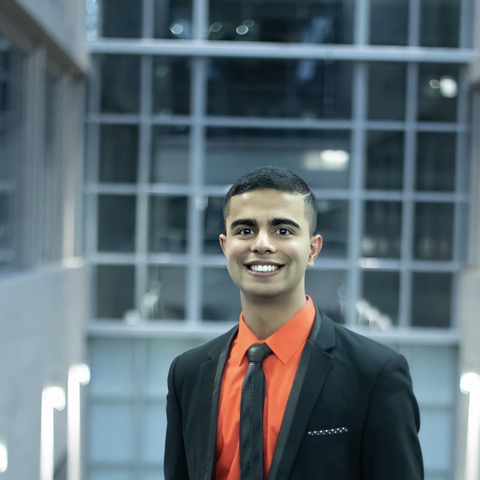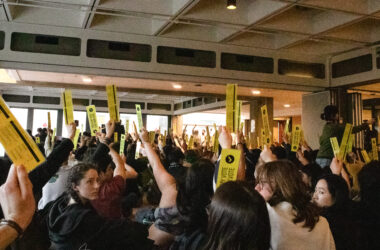As part of our mandate to cover campus news and student politics, The Tribune published 33 articles about Darshan Daryanani, former President of the Students’ Society of McGill University (SSMU), between 2021 and 2022. However, all of the facts were not available at the time of reporting.
In the Spring of 2023, Daryanani commenced legal action against 19 defendants including The Tribune and a staff writer, claiming damages for injury to his reputation, health, and earning potential. Daryanani and The Tribune have settled the matter, without any admission of liability.
As part of the settlement, The Tribune is publishing this statement to clarify the timeline and facts regarding Daryanani’s presidency.
Start of Presidency
Even before Daryanani assumed office as SSMU President, efforts were made to remove him from his role.
In March 2021, one of the candidates, who was subsequently elected to the SSMU Executive, publicly encouraged his peers to “start a controversy” about Daryanani. The candidate received a sanction from Elections SSMU for negatively campaigning against Daryanani. Nonetheless, Daryanani won the SSMU presidential race against two candidates, with 55% of the vote.
In May 2021, the aforementioned individual unsuccessfully attempted to oust Daryanani with a “vote of non-confidence”.
On May 31, 2021, during a confidential session, the SSMU Board removed Daryanani from his position as Chair of the SSMU Board of Directors. Daryanani was not present in the meeting, nor was he provided with any reasoning for his removal. Daryanani maintains that the SSMU’s actions contravened his employment contract and SSMU governing documents.
The Tribune has only recently learnt of this context.
Five-month long Suspension
Only three months after Daryanani commenced office as President, the SSMU Board took the extraordinary measure to suspend him from his role as President.
The SSMU Board initially told Daryanani that the suspension would end on November 5, 2021. Instead, they repeatedly extended his suspension four more times, over a period of five months. No reason was given for the suspension or subsequent extensions.
The Tribune did not have this context at that time of reporting.
Reinstatement
On January 6, 2022, SSMU finally appointed an independent lawyer to conduct an “admissibility analysis” into the complaints. Daryanani was not required to be interviewed by the investigator, and he was never informed of any allegations against him.
The analysis was conducted by Maître Magalie Poulin, a lawyer at HumaniLex Services Conseils. Poulin concluded that:
“None of these complaints are reasonably susceptible to lead to a conclusion of psychological harassment if they were respectively subject to an investigation. Indeed, even if all the alleged facts were proven as they were reported to us by the Complainants, they could not constitute a situation of harassment for either one of them.”
Daryanani was accordingly reinstated on February 14, 2022; however, he had lost five months of his Presidency.
In the February 22, 2022 issue, The Tribune covered this reinstatement, including perspectives from Daryanani and SSMU executives. At that time, The Tribune did not report on the conclusion of the investigation.
Impeachment
Despite the result of the investigation, SSMU representatives organized an online impeachment assembly on April 11, 2022, just six weeks before the scheduled end of his term.
The SSMU representatives did not provide any reasons for Daryanani’s removal. Daryanani claims that it was impossible for him to have a fair opportunity to defend himself against unknown allegations. He maintains that the impeachment violated SSMU regulations, and that it was inherently devoid of fairness and transparency.
Resolution
Daryanani’s claim against the other defendants remains ongoing in the Superior Court of Quebec. Daryanani believes that the resolution with The Tribune is a positive step, and that going forward, there will be an increased awareness of the fundamental principles of due process, procedural fairness and natural justice on university campuses, in student government and in the media.









